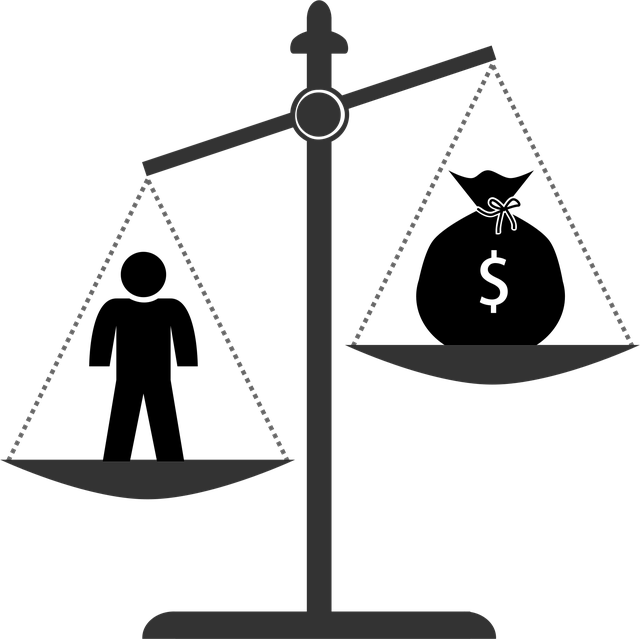The Department of Health and Human Services (DHS) handles child welfare cases with a focus on fairness and justice through defined roles for social workers and legal representation. Social workers investigate and recommend protections for vulnerable children while assisting families. Legal representation ensures equal access to justice, navigating complexities. Both children and parents have specific rights, crucial for navigating the process. Effective defense strategies involve challenging allegations with comprehensive evidence, including narratives humanizing the family. Strict protocols and admissibility rules ensure fair investigations. Lawyers face ethical challenges balancing child interests and parental rights. Navigating legal procedures requires strategic plans tailored to each case, fostering positive outcomes while protecting family rights.
In the complex landscape of DHS child welfare investigations, effective legal representation is paramount. This article delves into the critical roles and responsibilities within these cases, exploring the legal rights of both children and parents. We provide strategies for building robust defenses, guide evidence collection for admissibility, and discuss ethical considerations unique to child protection lawyers. By navigating legal procedures adeptly, professionals can ensure fair resolutions, ultimately enhancing outcomes in DHS child welfare cases.
- Understanding DHS Child Welfare Cases: Roles & Responsibilities
- Legal Rights of Children & Parents in Investigation Process
- Building a Strong Defense Strategy for Welfare Cases
- Evidence Collection & Admissibility in Child Welfare Law
- Ethical Considerations for Lawyers in Child Protection
- Navigating Legal Procedures for Effective Case Resolution
Understanding DHS Child Welfare Cases: Roles & Responsibilities

In DHS child welfare cases, understanding the intricate roles and responsibilities is paramount for ensuring a fair and just process. The Department of Health and Human Services (DHS) plays a pivotal role in protecting the well-being and rights of vulnerable children. Social workers, as DHS agents, are responsible for conducting thorough investigations, gathering evidence, and making recommendations to the courts. Their primary goal is to safeguard children from abuse or neglect while also supporting families in meeting their basic needs.
During these cases, legal representation is a cornerstone of due process. It ensures that all parties have equal access to justice and helps navigate the complex legal system. Attorneys for both the child welfare agency and the parents or guardians must adhere to specific guidelines, advocating for their clients’ interests while upholding the law. This balanced approach facilitates a comprehensive evaluation of each case, ultimately guiding decisions that are in the best interest of the child.
Legal Rights of Children & Parents in Investigation Process

In DHS child welfare cases, both children and their parents have specific legal rights throughout the investigation process. Children have the right to be treated with dignity and respect, as well as access to medical care, education, and other basic needs. They are also entitled to know and understand the allegations against them and to participate in decisions affecting their lives. Parents, similarly, have the right to remain silent and consult with an attorney during interviews. They can challenge evidence and request a fair hearing if they believe the case against them is unfounded. Understanding these rights is crucial for navigating the complex legal landscape of child welfare investigations.
During investigations, parents are entitled to be present at all significant interactions with DHS or law enforcement. They can also request a lawyer’s presence during interviews, which ensures their statements are protected from being used against them in court. It’s important to remember that these rights are designed to safeguard both the interests of the child and the family, aiming for a just resolution in each unique DHS child welfare case.
Building a Strong Defense Strategy for Welfare Cases

In building a defense strategy for DHS child welfare cases, it’s crucial to understand the unique dynamics and legal intricacies involved. The first step is gathering comprehensive evidence that challenges the allegations made by the child welfare agency. This includes documentation of any interactions with the family, medical records, educational reports, and community support systems in place. Additionally, legal counsel should thoroughly review the case file for procedural errors or inconsistencies, which can be instrumental in discrediting the investigation’s findings.
A robust defense strategy also involves preparing compelling narratives that humanize the family and highlight their strengths. This may include presenting character witnesses who can attest to the parents’ suitability as caregivers, along with expert opinions that contradict the agency’s assertions. By combining thorough documentation, legal scrutiny, and powerful storytelling, a strong defense can effectively challenge DHS child welfare cases, ensuring that families receive fair treatment throughout the investigation process.
Evidence Collection & Admissibility in Child Welfare Law

In DHS child welfare cases, evidence collection and admissibility are critical components that can significantly impact the outcome of investigations. Social workers and investigators must adhere to strict protocols when gathering evidence to ensure its integrity and admissibility in court. This includes documenting every step of the process, using reliable methods for data collection, and preserving confidentiality to protect sensitive information.
The admissibility of evidence in child welfare law is governed by strict rules designed to ensure fairness and accuracy. Relevant and material evidence must be obtained through legal means, such as interviews, observations, and documented interactions with children and families. Proper handling and presentation of this evidence during hearings are essential to help courts make informed decisions regarding the best interests of the child.
Ethical Considerations for Lawyers in Child Protection

In representing clients in DHS child welfare cases, lawyers face a unique set of ethical considerations. The primary goal is to ensure the best interests of the child are protected while upholding the rights of the parent or guardian. This delicate balance requires attorneys to navigate complex legal and moral waters, where decisions can have profound impacts on all involved parties.
Ethical dilemmas arise from various aspects, including confidentiality, consent, and potential conflicts of interest. Lawyers must maintain client privacy while also facilitating open communication with relevant authorities. Obtaining informed consent from clients is crucial, especially when making decisions that could lead to removal or placement of a child. Additionally, attorneys should be vigilant for any signs of self-interest or external pressures that might compromise their professional judgment and the integrity of the legal process in DHS child welfare cases.
Navigating Legal Procedures for Effective Case Resolution

Navigating legal procedures is an intricate aspect of ensuring a just and effective resolution in DHS child welfare cases. The process demands a delicate balance between upholding the rights of all involved parties, including the child, their parents or guardians, and the state. Lawyers play a pivotal role here, guiding clients through complex regulations and laws to advocate for their interests.
Effective legal representation involves staying abreast of changes in child welfare legislation, understanding the specific procedures in each jurisdiction, and employing strategic planning tailored to each unique case. By doing so, legal counsel can help de-escalate conflicts, challenge inappropriate interventions, and ultimately promote positive outcomes for children while protecting their families’ rights.






